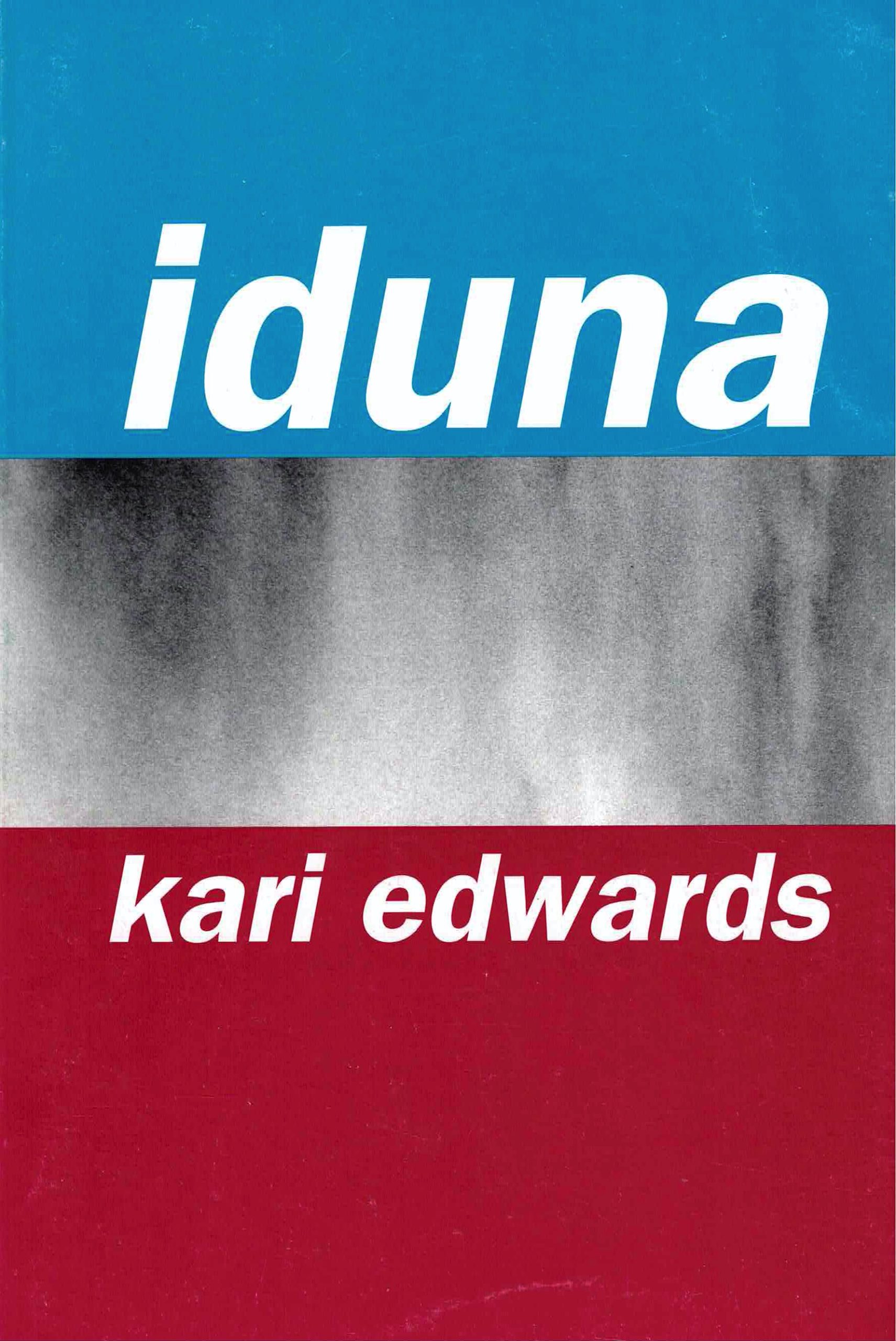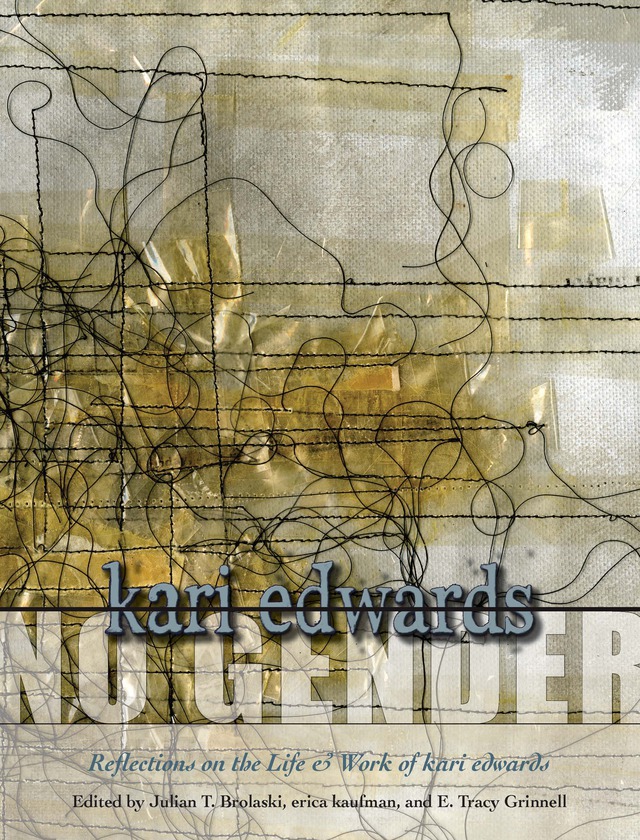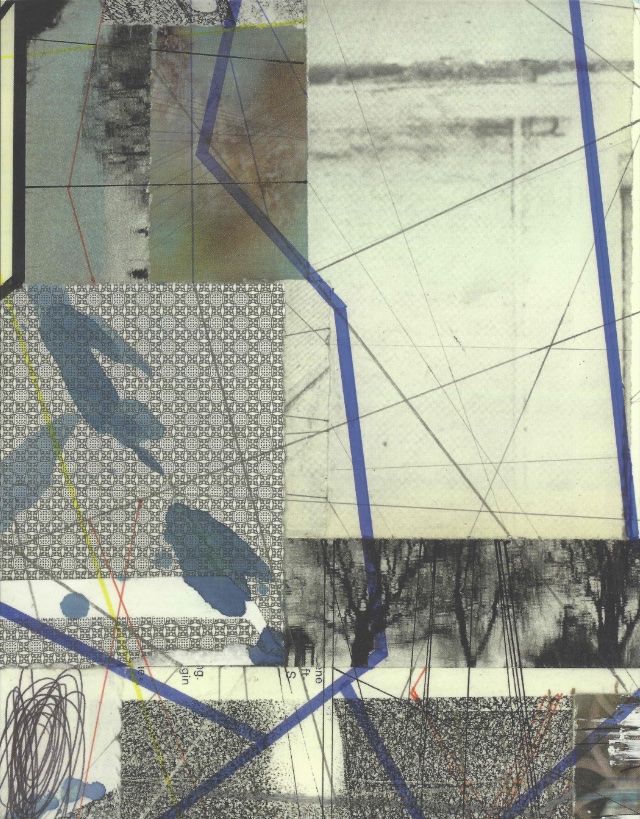iduna is an experiment in which the text (like a personality) is as if “set” to proceed by accident and mistakes of machine — but then, as such, in the workings of its “accidents” (as if she is margins of pages and words from ads and “theory” which are composing and revealing her: as if personality which is a machine/ and thus the text is akin to the memory of a Replicant in Blade Runner) the effect is seeing passionate/ ”personal”/ ”emotional” (un)programmed memory and responses.
kari edwards
Praise for iduna
If benign linearity marks the last vestige of Cartesian consciousness, Vitruvian space and Spinozan ethics, then iduna signalizes its catalectic adieu. For there is no return after this. kari edwards has written and conceived a bold, complex text that pushes lyricism to the brink of an interstice, between the Dictionary and its scream. Auto-translative, self-contaminatory, iduna never renounces its splendid linguistic excess, fabricating a textural world of legibility and illegibility, gravitation and non-gravitation, that powers its dweller (for one must dwell in iduna) gesturally around and among its morphs and torques. If Deleuze and Guattari are correct when they aver that writing “has nothing to do with signifying. It has to do with surveying, mapping, even realms that are yet to come” then iduna provides a special map to a certain dream of Coleridge’s: the frontiers of a post-cognitive.
— Steve McCaffery
Paratexts and processing suggestions stream through kari edwards’s iduna… The constant drive to make use of formal possibilities at the level of page and opening brings graphic format into substantive play… A machinic drive echoes in this work as a human, subjective voice struggles to come through the registers of current language events, noise, news, records, communications. The shape of a human outcry presses through the mass of mediated material. Form embodies possibilities enabled by the instructions of forced justification, font shifts, hard returns, tabs, chunked blocks, and other basic elements of text processing… Before we can ask what something means when we read it, we must ask what it means to read — and edwards poses that as a high-stakes question providing the point of departure for current poetic production.
— Johanna Drucker
Having evacuated the endemic patriarchal script, edwards writes hir own rules of the game in the wee hours when the sky turns green and binary logic decamps posthaste. Under the ruins of gender, iduna is a wild garden where “sexuality begets language.” The anarchic profusion of voices, discourses, idiolects, fonts and typographies that seem to rain down upon the page becomes the new “formlessness” which is the political signature of this resistant and absorptive text.
— Chris Tysh





kari’s work is more reflective, almost the non-intimacy of language gridding or obfuscations such as you might find in Dom Sylvester Houedard, but this is all arranged, arrayed. iduna writes through itself; unlike Swoon, there’s no possibility of resolution, and the words chunk themselves through in a manner similar to the border language surrounding page centers which resounds early Clark Coolidge but more relevant, the languaging occurring through online writing and interferences sidetracking and tending elsewhere.
— Alan Sondheim, The Alan Sondheim Mail Archive
Post-Kathy Acker, Nicole Brossard, Kevin Killian, Dodie Bellamy, Robert Glück, Bruce Boone, Camille Roy & Aaron Shurin, everything is up for grabs. What edwards does, to a degree that I haven’t seen since Acker’s early works, however, is to posit the instability of the text as the critical medium for addressing all the possible instabilities of the self & its cognates. Where so many poets find one aspect of language (sound, image, etc.) to zone in on, extending out from that “home” base into whatever new territory might be at hand, edwards seems to me most interested in that territory between linguistic (& human) fundamentalisms.
— Ron Silliman, Silliman’s Blog